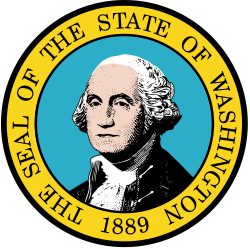| | |||||||||||||||||
November 4, 1952 | |||||||||||||||||
| |||||||||||||||||
 County results Jackson: 50–60% 60–70% Cain: 40–50% 50–60% 60–70% | |||||||||||||||||
| |||||||||||||||||
| Elections in Washington (state) |
|---|
 |
The United States Senate election in Washington of 1952 was held on November 4, 1952. Incumbent and highly-controversial Republican Harry Cain ran for a second term in office, but was defeated by Democratic U.S. Representative Henry M. Jackson. Jackson would come to serve 30 years as a United States Senator, and this would be his only election to the Senate in which he lost any of the state's counties.

